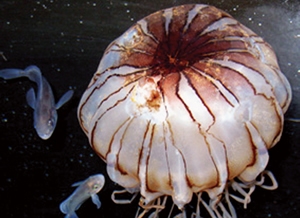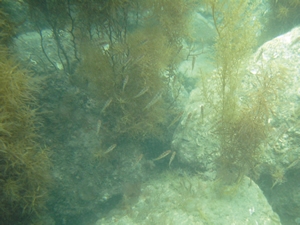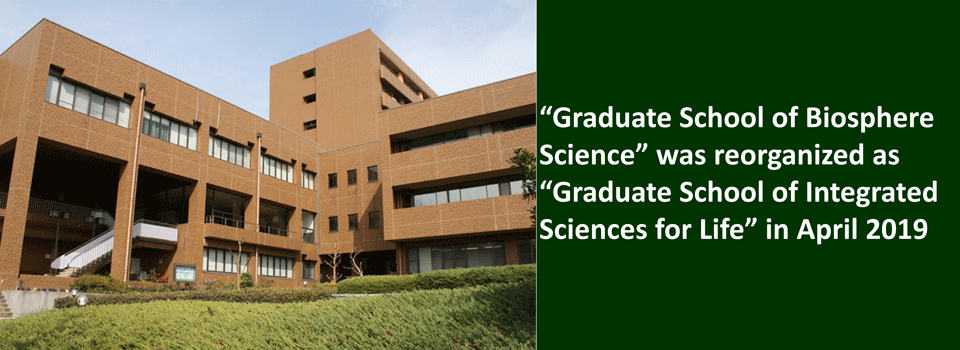Research
1) Phylogenetic, evolutionary, ecological and fishery studies on marine zooplankters and symbionts have been intensively carried out. Recently the following subjects have been addressed: (1) morphological and moclecular phylogeny and evolution of planktonic and parasitic copepods; (2) interactions between large-sized jellyfish and their symbionts; (3) fisheries of edible zooplanktoners such as shrimps, mysids and jellyfish in Asian countries; (4) taxonomic and ecological studies on alien planktonic and benthic organisms; (5) life cycle of copepods infecting fish; (6) molecular mechanism of host-specificity of parasitic copepods. (Ohtsuka S)
2) Our research field is phycology, especially taxonomy combining morphological and molecular-phylogenetic approaches, ecology and physiology of macroalgae. Current research interests are the biodiversity of coralline red algae which are related to coral reef building and barren ground, and also the effects of global and local environmental stresses on seaweeds. (Kato A)
Keywords
Zooplankton, Commercially harvested fish, Macroalgae, Deuterostomes,
Seagrass beds, Tidal flats, Phylogeny, Evolution, Ecosystem service, Symbiosis

Butter fish associated with venomous jellyfish

Seaweeds and fishes in the Seto Inland Sea
Recent Publications
Huys, R, Fatih, F, Ohtsuka, S & Llewellyn-Hughes, J. (2012) Evolution of the bomolochiform superfamily complex (Copepoda: Cyclopoida): new insights from ssrDNA and morphology and origin of umazuracolids from polychaete-infesting ancestors rejected. International Journal for Parasitology, 42: 71-92
Ohtsuka, S, Boxshall, GA & Srinui, K. (2012) A new species of Paramacrochiron (Copepoda: Cyclopoida: Macrochironidae) associated with the rhizostome medusa Rhopilema hispidum collected from the Gulf of Thailand, with a phylogenetic analysis of the family Macrochironidae. Zoological Science, 29: 127-133
Kato, A., Hikami, M., Kumagai, N.H., Suzuki, A., Nojiri, Y. & Sakai, K. (2014) Negative effects of ocean acidification on two crustose coralline species using genetically homogenous samples. Marine Environmental Research, 94: 1-6
Ng, P.-K., Lim, P.-E., Kato A. & Phang, S.-M. (2014) Molecular evidence confirms the parasite Congracilaria babae (Gracilariaceae, Rhodophyta) from Malaysia. Journal of Applied Phycology, 26: 1287-1300
Nash, M.C., Opdyke, B.N., Troitzsch, U., Russell, B.D., Adey, W.H., Kato, A., Diaz-Pulido, G., Brent, C., Gardner, M., Prichard, J. & Kline, D.I. (2013) Coralline algae in dolomite-rich reefs resist dissolution in acidified conditions. Nature Climate Change, 3: 268-272
Kato, A., Baba, M. & Suda, S. (2013) Taxonomic circumscription of heterogeneous species Neogoniolithon brassica-florida (Corallinales, Rhodophyta) in Japan. Phycological Research, 61: 15-26


 Home
Home
